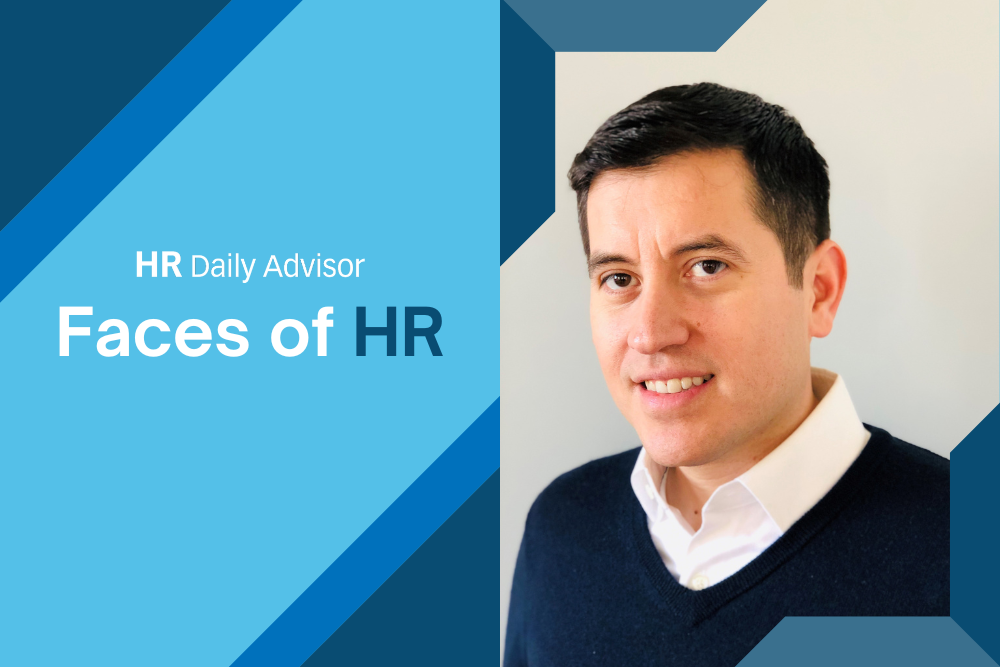Francisco Martinez-Garcia has served in the HR industry for more than two decades. He spent 16 years at Colgate Palmolive working in benefits and compensation and, in 2019, was tapped as Head of Global Compensation at Moody’s Corporation – a global integrated risk assessment firm that empowers individuals and organizations to make better decisions.
Four years later, Martinez-Garcia was named Chief Diversity, Equity, and Inclusion (DEI) Officer, where he oversees attracting, growing, and retaining diverse talent while cultivating an inclusive workplace at Moody’s. While Martinez-Garcia feels privileged to lead Moody’s DEI function, it’s also a personal passion for him.
“I’m proud that Moody’s is a place where people want to come and stay to work,” he shared with HR Daily Advisor. “When I was a young student, I never had a role model that looked like me. I did not know any Latino gay men who were married, had children, and a successful career. Since I didn’t see it, I did not think it was possible. My role and the work we do within DEI helps ensure that our current and future employees feel like they belong and can thrive in the workplace as their authentic selves. The best way to achieve that sense of safety and belonging is via representation – having a workforce (and leadership team) that looks like them. It is my job, but to an extent, I feel the need to pay-it-forward.”
In our latest Faces of HR, meet Francisco Martinez-Garcia.
How did you get your start in the field?
I studied economics and transitioned to HR thinking I would apply game theory to labor relations and union negotiations. With that in mind, I did my first internship with a large automotive company at one of their manufacturing sites in Detroit, MI. The experience was not what I expected. The relationship between management and the union was very confrontational and disrespectful – particularly toward minorities like me. The experience helped me understand the importance of the culture of an organization and discouraged me from focusing on labor relations. Instead, I pivoted to compensation, which was a good match for my interests and background in economics.
Who is/was your biggest influence in the industry?
I’m tempted to name influential authors or thought leaders in the field, though that would be disingenuous. There are some great thinkers in the space who have challenged and expanded my perspective, but my biggest influences have always come from my teachers, mentors, and sponsors at work. I’ve always found that the people you learn from are the ones who form your expertise and to a great extent help develop your leadership style.
What’s your best mistake and what did you learn from it?
Early in my career, I had the opportunity to present to a group of senior leaders within my organization. I was presenting a proposal for increased employee transparency in one of our internal processes. I had the pros and cons of transparency, but none of my arguments were based on data – most were based on assumptions and hypotheses. The presentation was heavily scrutinized and ultimately not successful. I did not have enough hard data to back-up my recommendation. At the time it felt like a disastrous presentation, and it was. I went back and did my homework – I looked for the data, built my business case, and eventually presented a similar recommendation. Only this time it was supported by data and the outcome was very different. From there on, I would always look for data to persuasively support my case.
What’s your favorite part about working in the industry? What’s your least favorite part, and how would you change it?
The success of organizations is based on their people and the cultures they create. I enjoy working in HR because it’s an increasingly critical element of a company’s overall business strategy. My favorite part of working in DEI specifically is that my efforts have a real impact in the lives and careers of our employees. Through our work we help create a culture that allows individuals to be their authentic selves; we help provide opportunities for career growth; we help lobby for benefits for previously marginalized sectors; and we increase the diversity in our organizations. All these efforts have a meaningful impact on individuals and play a critical role within our business.
How can HR most effectively demonstrate its value to the leadership team?
Businesses are only as strong as the people who work in those businesses. Attracting, developing, and retaining talent is crucial in any business, but particularly in Moody’s industry, which thrives on diverse insights to inform expert analysis. Leaders recognize the importance of having a diverse, engaged, and productive employee population to be successful. My team supports the business by attracting, developing, and retaining the best and most diverse talent.
Where do you see the industry heading in five years? Or are you seeing any current trends?
Data and analytics will play an ever-larger role in whether a business succeeds, stagnates, or fails. The same emphasis on data and analytics applies to attracting, developing, and retaining talent. Businesses need to be faster at reacting to business conditions that are impacting their workforce. An HR function that does not have a strong handle on their data and doesn’t have the capabilities to generate insights on how to react to those changing conditions, will not be successful.
What are you most proud of?
My family. My husband and two young kids.
Do you have any advice for people entering the profession?
As I mentioned earlier, data and analytics will continue to play an important role in HR. As a young professional you need to build that capability early on, and it will only make you a stronger HR professional.


